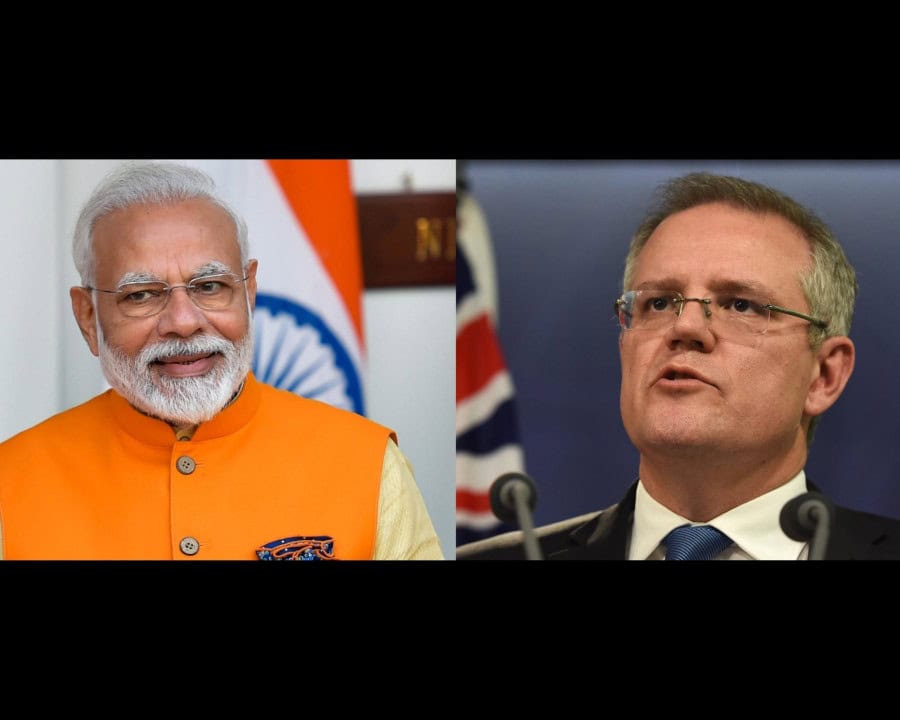Canberra – New Delhi: Reports emerging from India suggest India and Australia – two long-standing allies and members of the QUAD – are close to signing an interim free trade agreement this month as an effort aimed at reducing their dependency on China. The agreement is also aimed at consummating their economic relationship.
The two democracies have previously declared their intent to ink the full pact, called the Comprehensive Economic Cooperation Agreement (CECA), later this year.
The two countries had started negotiating the deal in 2011, but a failure to align their priorities meant that talks repeatedly stumbled. Political uncertainty in Australia — Morrison is the country’s fifth prime minister over the past decade — didn’t help, experts say.
But after the re-establishment of the QUAD in 2017, negotiations appeared to get back on track.
At the same time, to counter the effects caused by reducing dependency on China – China is Australia’s biggest trading partner and India’s major source of import – signing a major trade deal, as it was assumed, would help them both cut their reliance on China.
This is also evident in the rhetoric opted by the QUAD countries towards India, as it chose to abstain from voting against Russia at the Emergency Session of the United National General Assembly and the Security Council.
As Russia launched its invasion of Ukraine last month, Australian Prime Minister Scott Morrison faced tricky questions at a press conference about India’s reluctance to condemn the war.
Morrison quickly turned the subject to China and Beijing’s support for Moscow.
And when Morrison was asked to comment on India, he said, “all countries have different levels of engagement with Russia, and so I am respectful of that.”










